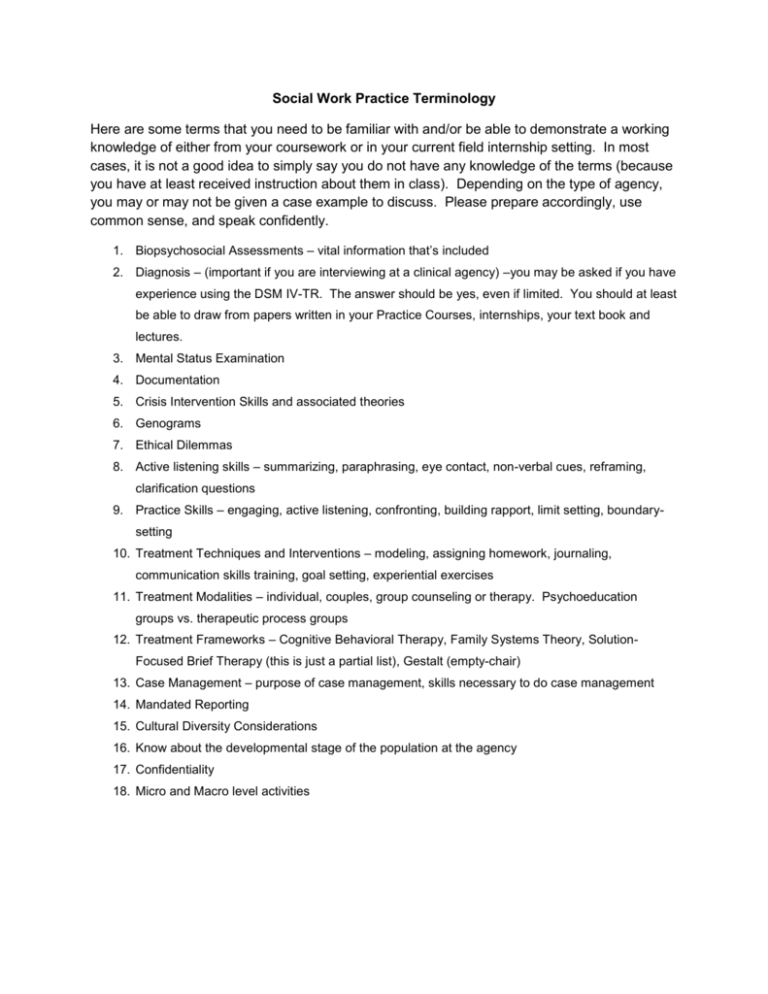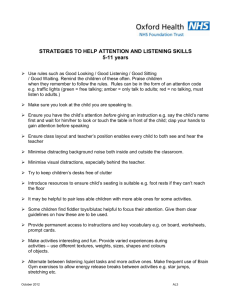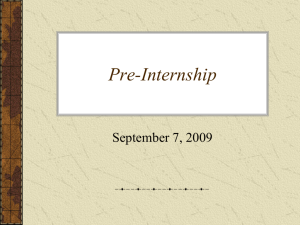Social Work Practice Terminology
advertisement

Social Work Practice Terminology Here are some terms that you need to be familiar with and/or be able to demonstrate a working knowledge of either from your coursework or in your current field internship setting. In most cases, it is not a good idea to simply say you do not have any knowledge of the terms (because you have at least received instruction about them in class). Depending on the type of agency, you may or may not be given a case example to discuss. Please prepare accordingly, use common sense, and speak confidently. 1. Biopsychosocial Assessments – vital information that’s included 2. Diagnosis – (important if you are interviewing at a clinical agency) –you may be asked if you have experience using the DSM IV-TR. The answer should be yes, even if limited. You should at least be able to draw from papers written in your Practice Courses, internships, your text book and lectures. 3. Mental Status Examination 4. Documentation 5. Crisis Intervention Skills and associated theories 6. Genograms 7. Ethical Dilemmas 8. Active listening skills – summarizing, paraphrasing, eye contact, non-verbal cues, reframing, clarification questions 9. Practice Skills – engaging, active listening, confronting, building rapport, limit setting, boundarysetting 10. Treatment Techniques and Interventions – modeling, assigning homework, journaling, communication skills training, goal setting, experiential exercises 11. Treatment Modalities – individual, couples, group counseling or therapy. Psychoeducation groups vs. therapeutic process groups 12. Treatment Frameworks – Cognitive Behavioral Therapy, Family Systems Theory, SolutionFocused Brief Therapy (this is just a partial list), Gestalt (empty-chair) 13. Case Management – purpose of case management, skills necessary to do case management 14. Mandated Reporting 15. Cultural Diversity Considerations 16. Know about the developmental stage of the population at the agency 17. Confidentiality 18. Micro and Macro level activities











